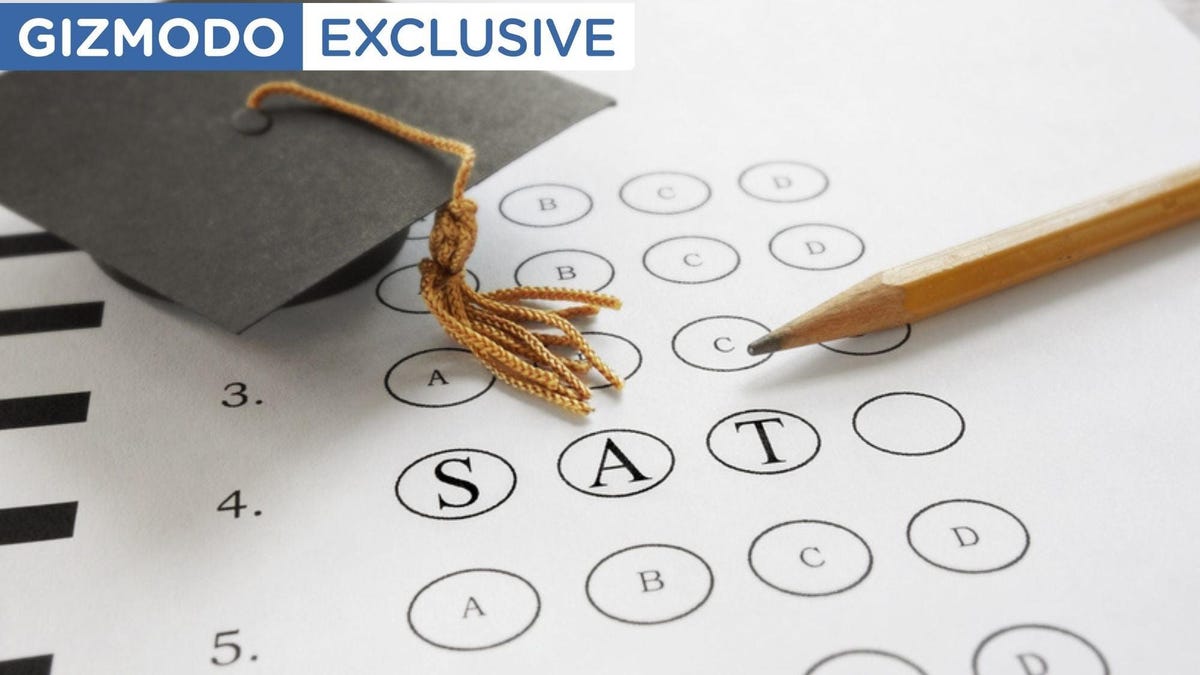
Many students have no choice about working with the College Board, the company that administers the SAT test and Advanced Placement exams. Part of that relationship involves a long history of privacy issues. Tests by Gizmodo found if you use some of the handy search tools promoted by College Board’s website, the organization sends details about SAT scores, GPAs, and other data to Facebook, TikTok, and a variety of other companies.
Gizmodo observed the College Board’s website sharing data with Facebook and TikTok when a user fills in information about their GPA and SAT scores. When this reporter used the College Board’s search filtering tools to find colleges that might accept a student with a C+ grade-point average and a SAT score of 420 out of 1600, the site let the social media companies know. Whether a student is acing their tests or struggling, Facebook and TikTok get the details.
Advertisement
The College Board shares this data via “pixels,” invisible tracking technology used to facilitate targeted advertising on platforms such as Facebook and TikTok. The data is shared along with unique user IDs to identify the students, along with other information about how you use the College Board’s site.
Organizations use pixels and other tools to share data so they can send targeted ads to people who use their apps and websites on other platforms, such as Google, Facebook, and TikTok.
Advertisement
Advertisement
“We do not share SAT scores or GPAs with Facebook or TikTok, and any other third parties using pixels or cookies,” said a College Board spokesperson. “In fact, we do not send any personally identifiable information (PII) through our pixels on the site. In addition, we do not use SAT scores or GPAs for any targeting.”
After receiving this comment, Gizmodo shared a screenshot of the College Board sending GPAs and SAT scores to TikTok using a pixel. The spokesperson then acknowledged that the College Board’s website actually does share data about the GPAs students report, along with the SAT ranges students use for searches.
“Pixels are simply a means to measure the effectiveness of College Board advertising,” the spokesperson said. “If a student uses the college search tool on CB.org, the student can add a GPA and SAT score range to the search filters. Those values are passed in the pixel, not because we configured the pixel that way but because that’s how the pixel works.”
The spokesperson stressed that no personally identifiable information is shared using pixels or cookies. Our tests didn’t show the College Board sharing information like names or phone numbers, which fall in the category of personal info. However, pixels and cookies typically contain unique strings of letters and numbers meant to identify and track users. For years, experts have argued and demonstrated this poses privacy risks and is far from anonymous.
Advertisement
This kind of data sharing is common on the internet. For example, Gizmodo found 28,000 apps sending TikTok data in March, a number that likely under-counts the company’s actual data harvesting empire. In December, 2022, an investigation found Amazon, FBI.gov, and 70,000 other websites sending user data to Twitter, the company now known as X.
However, many privacy advocates have argued the College Board and companies which handle data about students and minors should be held to a higher standard—especially when many of these services are all but mandatory in the American education system.
Advertisement
The College Board has a long and troubled history when it comes to student privacy. In 2018 and 2019, the organization was caught selling data about students, including the names of SAT test takers, for as little as 47 cents a piece. An investigation in 2020 by this reporter found similar data sharing practices, in which the College Board told Google, Facebook, and numerous other companies about nearly everything you did on the company’s website.
At the time, this violated explicit commitments the College Board made to users, including the “Student Privacy Pledge,” a voluntary commitment between education technology companies. By signing the pledge, the College Board promised not to “use or disclose student information collected through an educational/school service (whether personal information or otherwise) for behavioral targeting of advertisements to students.”
Advertisement
Since then, the College Board appears to have scrubbed references to the Student Privacy Pledge from its website and is no longer listed as a signatory.
The College Board Spokesperson said the company uses student data, with permission, to help students access and succeed in college. “Transparency is among our key data privacy principles,” the spokesperson said, providing a link to the company’s privacy policy.
Advertisement
If you want to attain higher education in the United States, the College Board is hard to avoid. The organization writes and administers the SAT test and Advance Placement (AP) exams, which students take to earn college credit and bolster applications. The College Board also runs standardized tests taken by children as young as kindergartners, and essentially writes the curriculum in some school districts.
The College Board, as powerful as a governmental institution in some regards, is a non-profit. But that doesn’t mean it isn’t profitable for the people who run it. According to tax forms, 14 of the College Board’s 17 executives made more than $300,000 in 2021. Together, CEO David Coleman and President Jeremy Singer made $1,782,254.
Advertisement
TikTok’s ad library shows that the College Board ran a number of ads on the platform in fall of 2022, but TikTok doesn’t disclose whether or not these ads were targeted at students using data collected from pixels.
Update, August 28th, 4:46 p.m.: This article has been updated to clarify what data the College Board shares.
Services Marketplace – Listings, Bookings & Reviews